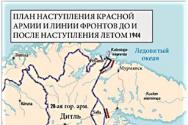They want to tax Russians for childlessness. Do we need a child tax? “On the status of large families in the Russian Federation”
Journalist Alexandra Bayazitova talks about why it would be good for freaks with tax initiatives to start understanding the subject.
“It is necessary to introduce a tax on small children” - this headline did not leave the top of Yandex yesterday. A certain freak, the author of the book “Wrath of the Orc” and the project for the colonization of Mars, sent Vladimir Putin a “concept of a bill” to impose a tax on childlessness on all Russians - according to the developer, it should be small, but offensive. So much so that the birth rate instantly increases. He believes that funds from the tax should be used to support large families. Journalists began to unanimously copy-paste the “news” (Clicks! Clicks! Clicks!), and wise analysts began to talk about the advisability of introducing this “innovation”.
And for some reason no one thought to actually open tax code and find out... that such a tax has already existed for a long time!
It is not called as loudly and beautifully as the author of the “concept” suggests, but every childless family pays it - although many do not suspect it. And it’s really small, though I’m not sure about being offensive. It's called the "child tax credit." Families with children can reduce their income tax by this amount, but childless citizens are deprived of this benefit. The difference between the benefit and the full amount of personal income tax is the desired “tax on small children.” Let's do the math. Let’s take, for example, two families: a childless one and one with three children (since only families with three or more children are considered to have many children, which means, according to the author of the “concept,” they will be exempt from the tax on “small children”).
According to Rosstat, the average salary of a Russian at the end of last year was 36.2 thousand rubles. That is, a childless family couple with an income of 72.4 thousand rubles will pay 9,412 rubles in income tax to the budget.
For a family with three children, the calculation will be more complicated. Tax deduction from the salary of each parent for the first two children will be 2800 rubles, for the third - 3 thousand rubles. That is, from their taxable income of 72.4 thousand rubles, they will “deduct” 11.6 thousand rubles. And in the end, they will pay a total of 7,904 rubles in tax to the budget - 1,500 rubles less than a childless couple.
But I’m really not sure that the benefit from the state of 1,500 rubles for three children somehow contributes to an increase in the birth rate. And that some of the childless may be jealous of such a “profit”.
About the "tax on small children" in one minute
In Russia they want to introduce a tax on small children - an analogue of the monetary tax that existed in the Soviet Union from the early 40s until the collapse of the USSR. Then, from Soviet citizens who did not have children, 6 percent of their income was withheld monthly as tax. wages. What will be the amount of tax in 2017 and how great are the chances of the adoption of the relevant law, read the material on the site.
The essence of the tax and how much to pay
The idea of levying a tax on small children was included in the project federal law“On the status of large families,” which was developed at the Institute of Demography, Migration and Regional Development in 2017. It was there that the main concept was formulated - to support large families at the expense of Russians who do not want to have children or for some reason are postponing childbearing. The proposal was sent to Russian President Vladimir Putin by the head of the Institute, Yuri Krupnov.
The concept was developed in the wake of Vladimir Putin’s famous May decrees, which also spoke about demographic policy in the country. The document contains a number of measures designed to improve the status of large families and solve the demographic problem in less than 15 years. Thus, families with a large number of children are offered to pay monthly from 25 thousand (for families with 3-4 children) to 100 thousand (if there are eight or more children) rubles. Much attention has been paid to improving living conditions for large families.
However, the greatest resonance was caused by the proposal of the authors of the concept to introduce a special tax on small children in the country. It is supposed to be collected from spouses who do not have children good reasons(according to medical indicators), as well as from families with only one child. The size of the new tax has not yet been determined, how and up to what age the taxpayer wants to collect it.
A similar proposal was voiced by Deputy Chairman of the Moscow City Duma Nikolai Gubenko at the end of April 2017, according to whom it is necessary to introduce a tax on childlessness for wealthy people in the capital. The deputy also proposed to use the collected funds for the needs of large families.
Feedback on the tax project
Krupnov’s initiative was commented on by many high-ranking officials and public figures. Most reacted negatively to her.
For example, Anna Kuznetsova, Commissioner for Children's Rights under the President of the Russian Federation, believes that a different approach is needed to increase the birth rate. In her opinion, the Russian family should not choose between the options “give birth in order not to pay tax” or “pay in order not to give birth.”
Member of the Federation Council Elena Mizulina, known for many controversial bills, called such initiatives erroneous and harmful. The senator expressed confidence that it is necessary to rely not on discrimination against certain categories, but on their support.
Labor Minister Maxim Topilin also reacted negatively to Krupnov’s idea, noting that the ministry under his control is preparing other proposals to increase the birth rate. According to him, we're talking about about measures related to supporting the population and the birth rate, but not to punishment.
Chapter Russian government Dmitry Medvedev, commenting on the possibility of introducing a tax on small children, said bluntly: there are no plans to introduce such a tax. He called on all men and women who do not have children to calm down. At the same time, the head of government admitted that the authorities should take care of increasing the birth rate, but in more humane ways.
The press secretary of the Russian President Dmitry Peskov commented on the initiative most neutrally among those in power. He noted that the Kremlin had not yet seen the new concept of a tax on small children, so he refused to give any feedback on it.
Krupnov’s idea was also criticized by the expert community. HSE employee Andrei Korotaev is confident that such an idea can be implemented in modern conditions extremely difficult. He is confident that the initiative will not increase the birth rate, but will only embitter Russians. According to Korotaev, to overcome the demographic crisis, it is not the stick in the form of regular fees from taxpayers that works best, but the carrot. One of the factors that encourages people to give birth is the solution to the housing problem, the expert emphasized.
Anatoly Vishnevsky, head of the HSE Institute of Demography, noted that each person decides for himself whether to have children or not. He called the proposed measure untenable. According to Vishnevsky, it is unlikely that anyone will decide to have a child just to avoid paying tax.

Tax on childlessness in the USSR
In the Soviet Union, the childlessness tax was in effect since 1941 (it was adopted a few months after the start of the Great Patriotic War). Patriotic War). The text of the law establishing the tax stated that all childless men from 20 to 50 years of age and childless women from 20 to 45 years of age must pay a tax of 6 percent of their monthly earnings to the treasury. Later, the law was amended to stop charging single women the tax.
 The tax was levied on workers and employees. For the rural population, which included everyone who was part of collective farms and individual peasant farms, it was calculated a little differently: childless men and women paid 100 rubles a year. Later this amount was increased to 150 rubles. In addition, a rule was temporarily in force (in 1949-1952), according to which the tax, although reduced, was paid even by rural residents with few children who had one child.
The tax was levied on workers and employees. For the rural population, which included everyone who was part of collective farms and individual peasant farms, it was calculated a little differently: childless men and women paid 100 rubles a year. Later this amount was increased to 150 rubles. In addition, a rule was temporarily in force (in 1949-1952), according to which the tax, although reduced, was paid even by rural residents with few children who had one child.
Citizens of the USSR who, perhaps, dreamed of children, but could not have them due to a number of reasons, most often medical, were exempt from paying the tax. In addition, the childlessness tax was not levied on those whose children died, died or went missing during the Great Patriotic War.
The law provided for the termination of the collection of the “childless” tax immediately after the first child was born in the family or he was adopted. But if an accident occurred and the baby died, the tax began to be charged again.
The law exempted from paying tax:
- military personnel and their spouses;
- students (men under 25 years old and women under 23 years old);
- pensioners;
- disabled people of I and II disability groups;
- Lilliputians;
- schizophrenics and other citizens with mental illnesses.
The childlessness tax in the USSR was also not levied on Soviet citizens who earned little money.
Those who were not eligible for benefits, upon reaching the age of 20 and in the absence of children, were forced to part with part of their income. In factories, accountants monitored the collection of taxes. It was necessary to warn them in time about changes in their personal lives. For example, if a girl got married, but the couple did not yet have children, they began to collect taxes from her. If, on the contrary, she got divorced, they stopped charging her childlessness fees. Women were required to report changes in marital status within 20 days.
In what year was the tax abolished?
In the 80s of the 20th century, all newlyweds were exempted from the childlessness tax, but this benefit was valid only in the first year of marriage. If, after its expiration, the first-born did not appear in the family, both husband and wife were taxed according to the law on small-family citizens.
In 1990, the tax on childlessness was made more lenient. In particular, the rate was reduced for those whose monthly salary did not exceed 150 rubles. Subsequently, it was planned to gradually abolish this fee, but the collapse of the USSR was proactive in this matter. Demographic tax became a thing of history along with Soviet Union. Perhaps now its place will be taken by a tax on small children.
13:37 — REGNUM The idea of taxing childless families is unproductive and hardly feasible, experts agree. The main disadvantage of such a collection is that it will not make the lives of large families any easier, they are sure, the correspondent reports. IA REGNUM. The initiative to introduce a tax on childlessness was made by the Deputy Chairman of the Moscow City Duma Nikolay Gubenko. According to him, such a tax could be imposed on “wealthy people”, and the proceeds could be sent to the needs of large families.
At the same time, Gubenko did not specify which citizens would fall under the definition of “wealthy”. In addition, according to the parliamentarian, the new tax will help in the implementation of “the national idea of preserving, saving and multiplying the nation.”
Administration
It is unlikely that with the help of such a tax, officials will be able to stimulate the birth rate: those who do not have children will not give birth to them just to avoid fees, so the proposal is quite exotic, notes a lecturer at the Faculty of Economic Sciences at the National Research University Higher School of Economics Mikhail Gorst.
The question arises as to how this tax will be administered, Gorst said. “In one region there are many large families, in another there are few; how the redistribution of funds will take place is completely unclear,” he notes.
In addition, the expert continues, the cost of such administration may be high and will not justify the introduction of a tax. “The simpler and more transparent the tax, the better - this is typical for any tax system, so you shouldn’t come up with complex and incomprehensible designs,” says Gorst.
They don't do that
A tax on childlessness previously existed in the USSR - its rate was 6%, but for developed countries such a measure is generally not typical,” notes a member of the Committee of Civil Initiatives Vladimir Nazarov. According to him, most often, in order to alleviate the situation of large families, the state reduces the amount of income tax for them, rather than introducing additional fees for other citizens.
However, such a measure in Russia would also be unproductive, Nazarov believes. “If we establish deductions at a low rate for large families, we will not improve their situation much, but regional budgets will not receive a decent amount of funds,” he believes.
According to Nazarov, even if large families are completely exempted from income tax, the situation will still not change - mainly due to high level poverty of the population. “We calculated: if we exempt all households with incomes below the subsistence level from paying income taxes, poverty will be reduced by less than 1%,” the expert said.
In order to reduce taxes for large families, the population must become richer, Nazarov notes. “Then it will be possible to introduce a higher income tax rate so that the benefits for families with many children will be tangible,” he notes. Therefore, from his point of view, today the state needs to think about helping the poor, and not introducing new taxes on the population.
Extra tax
A member of the expert advisory council at Rosimushchestvo also agrees with this point of view. Alexey Mikheev. “All stimulation should not come through prohibitive measures in the form of taxes or any other restrictions, but through support measures,” he notes.
According to Mikheev, from an economic point of view, Nikolai Gubenko’s proposal is “absolutely useless.” “Such a measure and tax will not stimulate the birth rate, unlike the same maternity capital or other ways to support parents - for example, optimization and reduction of certain expenses. This is much more effective than coming up with ridiculous laws,” notes Mikheev.
Earlier, the proposal of the deputy chairman of the Moscow City Duma was criticized by a member of the Federation Council Elena Mizulina. She called the initiative “thoughtless and unfair,” also noting that the tax will first affect those people who cannot have children for health reasons.
After President Putin’s statement that taxes should not be raised, or even better, lowered, legislators and the Cabinet of Ministers, as well as experts, began to propose new taxes.
In particular, some propose introducing a tax not only on childlessness, but also on small children.
Tax on childlessness and small children 2017 in Russia: tax on childlessness and small children - what is it?
In particular, the director of the Institute of Demography, Migration and Regional Development, Yuri Krupnov, sent Russian President Vladimir Putin a draft concept of the federal law “On the status of large families.”
The document talks about introducing a tax on families with one child or without children, writes rsute.ru. Families with children can reduce their personal income tax (NDFL) by this amount, although childless citizens are deprived of this benefit.
The bill also includes a proposal to equate raising children with work experience.
In turn, the head of the Ministry of Labor Maxim Topilin said that the department has a negative attitude towards the initiative to introduce a tax on childlessness. He also clarified that the Ministry of Labor’s proposal is aimed at measures to stimulate the birth rate.
Tax on childlessness and small children 2017 in Russia: have Russians been paying a tax on childlessness for a long time?
It is worth saying that the difference between the benefit and the full amount of personal income tax is the tax on small children. Every childless citizen in Russia pays this tax, although he is not aware of it.

According to Rosstat, childless spouses earning an average of 72.4 thousand rubles are deducted 9,412 rubles in income tax. Parents raising three children contribute 7,904 rubles, that is, 1.5 thousand rubles less.
By the way, Russians oppose the introduction of a tax on childlessness, as indicated by a survey conducted on the Odnoklassniki social network. 70% of respondents spoke negatively about this collection.
It is worth saying that in the USSR, a tax on childlessness was introduced in 1941. At that time, men and women over 20 years of age who did not have children paid 6% of their salary monthly. The fee was abolished in 1992.

Tax on childlessness and small children 2017 in Russia: Medvedev spoke about the introduction of a tax on childlessness
While on a working trip to St. Petersburg, Russian Prime Minister Dmitry Medvedev spoke about the introduction of a tax on childlessness.
He assured that no one is going to introduce this tax. Let us recall that last week, Deputy Chairman of the Moscow City Duma Nikolai Gubenko proposed introducing a tax on childlessness, helping large families with the proceeds. This statement gave rise to many rumors.
That is why St. Petersburg workers asked Medvedev such a question. The Prime Minister assured that there are no plans to introduce this tax in the country. But then he also remembered the program to increase the population through the birth rate.

Medvedev also said that it is necessary to work to stimulate the birth rate not only of the second child in the family, but also of the first. And it is precisely this issue that is currently being studied. But this will be help from the state, and not a tax forcing people to have children.
In a free state, each person has the right to have his own worldview and life priorities. Some have plans to significantly increase the state’s birth rate, while others are not ready to have children at all. Force a person to own position from the point of view of a democratic state, it is impossible for him to change his value system. However, it seems quite possible to introduce taxes for those people whose life scenarios do not correspond to the generally accepted one.Will itchildlessness tax introducedin 2017 in Russia, 
the article will tell. People who have reached the age of childbearing, but do not have offspring, make payments to the state. The founder of the idea of such a tax claims that a mature person, if for personal reasons he does not intend to produce offspring, should at least help with a tax.
- In the future, this tax can be used to provide financial support to families who decide to give an orphan child a family.
- Payments may be terminated in the following cases:
- Diagnosis of infertility
- Birth of children
Adoptions Adopting a foster child into a family
Of course, these measures are unlikely to encourage the population to have children on a mass scale. According to analysts, in the first year after the introduction of such a tax, an increase in the birth rate is indeed possible. But after a while, people will get used to it and the former zeal will go away.
However, at least such innovations can smooth out the difference between the incomes of childless citizens and those who have children. Although the childlessness tax can hardly be called an innovation: it existed in the USSR. And it has a chance to resume its existence now. Don't forget that it even exists. True, its existence is somewhat indirect. Deduction for children. IN modern Russia 
the population is accustomed to paying. Many people don’t even think that the payment of this tax also indirectly hides the tax on childlessness.
After all, for citizens with children, deductions to the treasury come from the amount 1,400 rubles less than for those who have no offspring. And for the third and subsequent children - 3,000 rubles. Single parents receive a deduction twice as large. For a parent raising a disabled child, the deduction is 12,000 rubles.Tax rates. Thus, this figure is at least 182 rubles. It is established in the form of an additional payment to parents and is written down on the payslip. For two children this is 364 rubles, respectively, for a third child - 390 rubles. That is, now in Russian Federation 
There is an analogue of the tax for the childless and it works on the opposite principle.
Prospects
Can the childlessness tax take a strong place in the Russian tax system? Hardly. Having heard the next proposal to introduce it, the President was in no hurry to support it. In 2015, Vladimir Zhirinovsky took the initiative. He proposed withholding 6% of their income from childless men. However, the President noted that such measures are not necessary.Birth rates are rising and no decline is expected. On the contrary, the introduction of a controversial tax may not only not stimulate the population to give birth, but also cause protest. In addition, the Head of State pointed out the lack of moral grounds for such a tax.?It is impossible to find a state that has a childlessness tax. Practice has shown that its use is ineffective and quite difficult, even biased.








